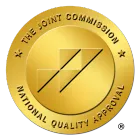
Exploring the Path From Isolation to Connection
In today’s fast-paced world, loneliness has emerged as a pervasive issue, particularly affecting individuals battling eating disorders. While it may seem paradoxical, feeling lonely isn’t just about being physically alone; it’s about perceived social isolation. For those already dealing with the isolating nature of eating disorders, this loneliness can exacerbate their struggles. Waves of Hope Ed has emerged as a crucial support system, dedicated to helping individuals navigate this intricate web of loneliness and recovery.
The Pervasive Nature of Loneliness Among Those With Eating Disorders
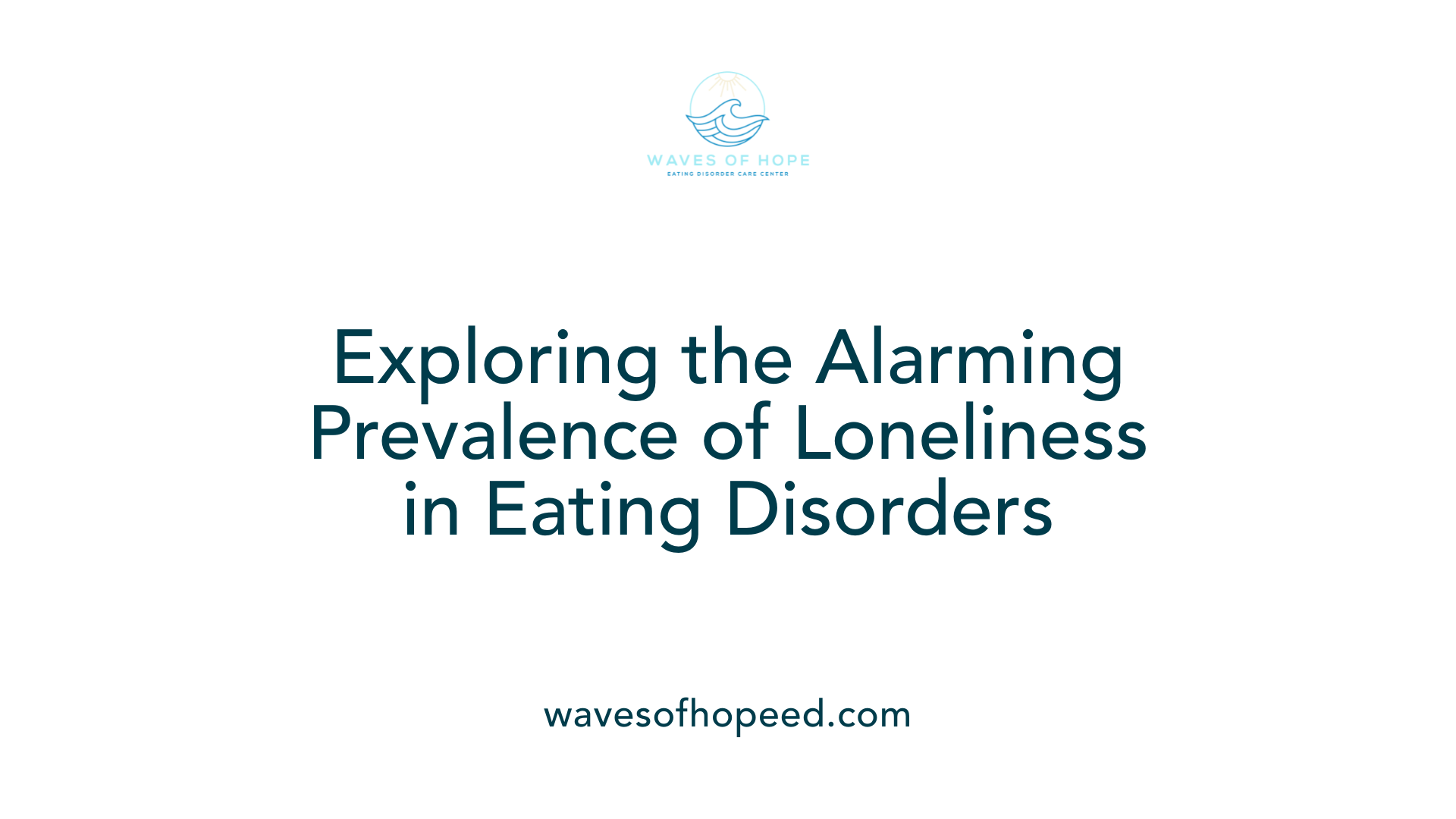
Prevalence of Loneliness in Eating Disorders
Loneliness is an endemic feeling among individuals suffering from eating disorders, with 1 in 4 Australians experiencing persistent loneliness. The numbers are alarming, considering that 1 in 3 Australians report feeling lonely. This distressing experience is not merely a symptom of the disorders but also a contributing factor that can exacerbate their severity. Those with eating disorders often enter a vicious cycle, where feelings of isolation lead to destructive eating behaviors, which, in turn, intensify their sense of loneliness.
Relationship Between Loneliness and Eating Disorders
The connection between loneliness and eating disorders is complex and bidirectional. On one hand, loneliness can manifest as emotional distress, leading individuals to cope through unhealthy eating behaviors. For many, food becomes a way to manage feelings of worthlessness and isolation. On the other hand, as individuals engage in disordered eating, they may withdraw from social interactions out of shame or fear of judgment, further deepening their loneliness.
The psychological impact is profound. Loneliness can lead to increased body dissatisfaction and heighten concerns about weight and shape, further influencing the cycle of disordered eating. Those grappling with these issues often do not clearly label their emotional pain as loneliness; instead, they may express feelings of isolation or being a burden to others, reinforcing their disconnect from social networks.
To counter these influences, effective therapies, including Cognitive-Behavioral Therapy and group interventions, focus on fostering social connections. Support systems that encourage individuals to share their experiences can be transformational. For instance, group support programs have shown promise by facilitating connections among participants, emphasizing shared experiences and cultivating a sense of belonging.
Additionally, community engagement through therapeutic practices, such as music therapy, showcases innovative ways to address loneliness. Group singing or activities in therapy can help foster empathy and communication, making participants feel connected and understood.
Overall, addressing loneliness through supportive, therapeutic environments significantly improves mental health outcomes and helps dismantle the isolating effects of eating disorders. Effective treatment strategies must highlight this connection and encourage individuals to foster healthy relationships and bridges to community support.
Waves of Hope Ed: Connecting Through Community and Support
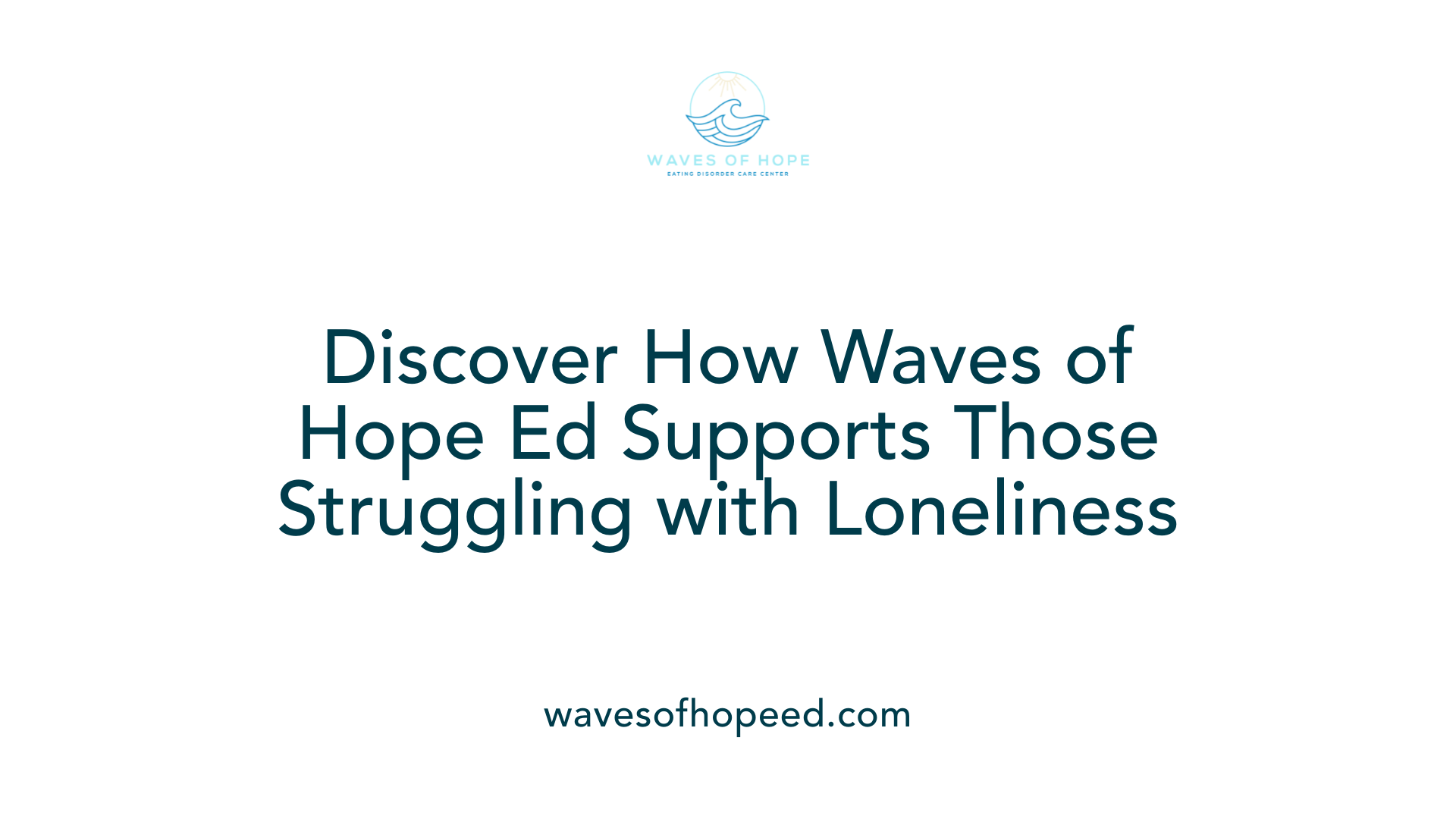
How does Waves of Hope Ed assist clients in overcoming feelings of loneliness?
Waves of Hope Ed plays a crucial role in aiding clients to overcome loneliness through the establishment of community-based support initiatives. Their therapist-led groups provide a safe environment where individuals can connect with others who share similar experiences. This allows participants to engage in meaningful dialogue, share their struggles, and experience camaraderie, all of which contribute to a sense of belonging.
The organization emphasizes the importance of connection, addressing loneliness through structured support groups. These groups not only help individuals articulate their feelings but also foster a shared narrative that mitigates isolation. Participants often describe this environment as therapeutic, nurturing emotional growth and resilience.
Moreover, Waves of Hope Ed offers a helpline staffed by licensed therapists, ensuring that instant support is available for those in need. This access to professional guidance serves as a lifeline for individuals grappling with feelings of loneliness and disconnection, reinforcing their mental health journey.
Community-based support
Engaging in community activities is another vital component of Waves of Hope Ed's approach. Programs like the 'Rally for Recovery' create opportunities for individuals to interact in public settings, enhancing their social networks. These events are designed not just to educate but also to cultivate relationships around shared interests, minimizing feelings of isolation.
Additionally, community involvement encourages collaboration among participants, fostering friendships that extend beyond group sessions. Individuals often find that their shared goals—such as recovery and support—create a powerful bond, promoting accountability and emotional encouragement.
Therapist-led groups
The therapist-led groups are crafted to integrate various therapeutic approaches, including Cognitive-Behavioral Therapy techniques. This helps group members identify and alter negative thought patterns related to their loneliness and eating disorders. By engaging with others in a supportive environment, clients can learn effective coping strategies and social skills.
These groups also emphasize the universality of struggle, allowing participants to recognize that they are not alone in their experiences. Research has shown that sharing personal narratives can significantly relieve feelings of isolation. As members open up about their feelings of loneliness and their journeys with eating disorders, they cultivate a supportive atmosphere that thrives on mutual understanding and empowerment.
In conclusion, Waves of Hope Ed exemplifies a supportive community initiative, uniquely tailored to foster connections amongst individuals facing loneliness and eating disorders. By blending community-based and therapist-led strategies, they create a nurturing space conducive to healing and belonging.
Therapeutic Approaches At Waves of Hope Ed
What therapeutic approaches are used by Waves of Hope Ed to address loneliness?
Waves of Hope Ed employs a comprehensive range of therapeutic methodologies designed to effectively tackle loneliness among individuals suffering from eating disorders. One of their primary strategies is the offer of online support groups. These virtual settings create a safe and non-judgmental platform where participants can share their feelings of loneliness and isolation, fostering connections that are essential for emotional healing.
In addition to online interactions, Waves of Hope Ed facilitates free therapist-led support groups. These sessions not only reduce feelings of isolation but also promote a sense of belonging and community among participants. Group therapy is particularly beneficial as it utilizes the concept of universality, helping individuals realize they are not alone in their struggles.
Furthermore, the organization emphasizes the importance of immediate support through resources like confidential screening tools and helplines. These tools are designed to assist individuals in crisis, providing them with access to professional help at critical moments.
Benefits of Online and In-Person Support Groups
- Safe Space: Online groups provide a judgment-free environment for expression and sharing.
- Community Building: Facilitated groups promote social connections, which are vital for combating loneliness.
- Therapist Guidance: Professional support throughout the sessions helps participants articulate their feelings and find constructive coping mechanisms.
- Accessibility: Participants can join from wherever they feel comfortable, making it easier for those with social anxiety or other barriers to access help.
Ultimately, Waves of Hope Ed combines peer support with professional resources, creating a holistic approach that not only addresses loneliness but also fosters recovery from eating disorders. This multifaceted strategy highlights the organization’s commitment to enhancing the emotional well-being of all participants, promoting hope, and encouraging personal growth.
Role of Community Resources in Overcoming Loneliness
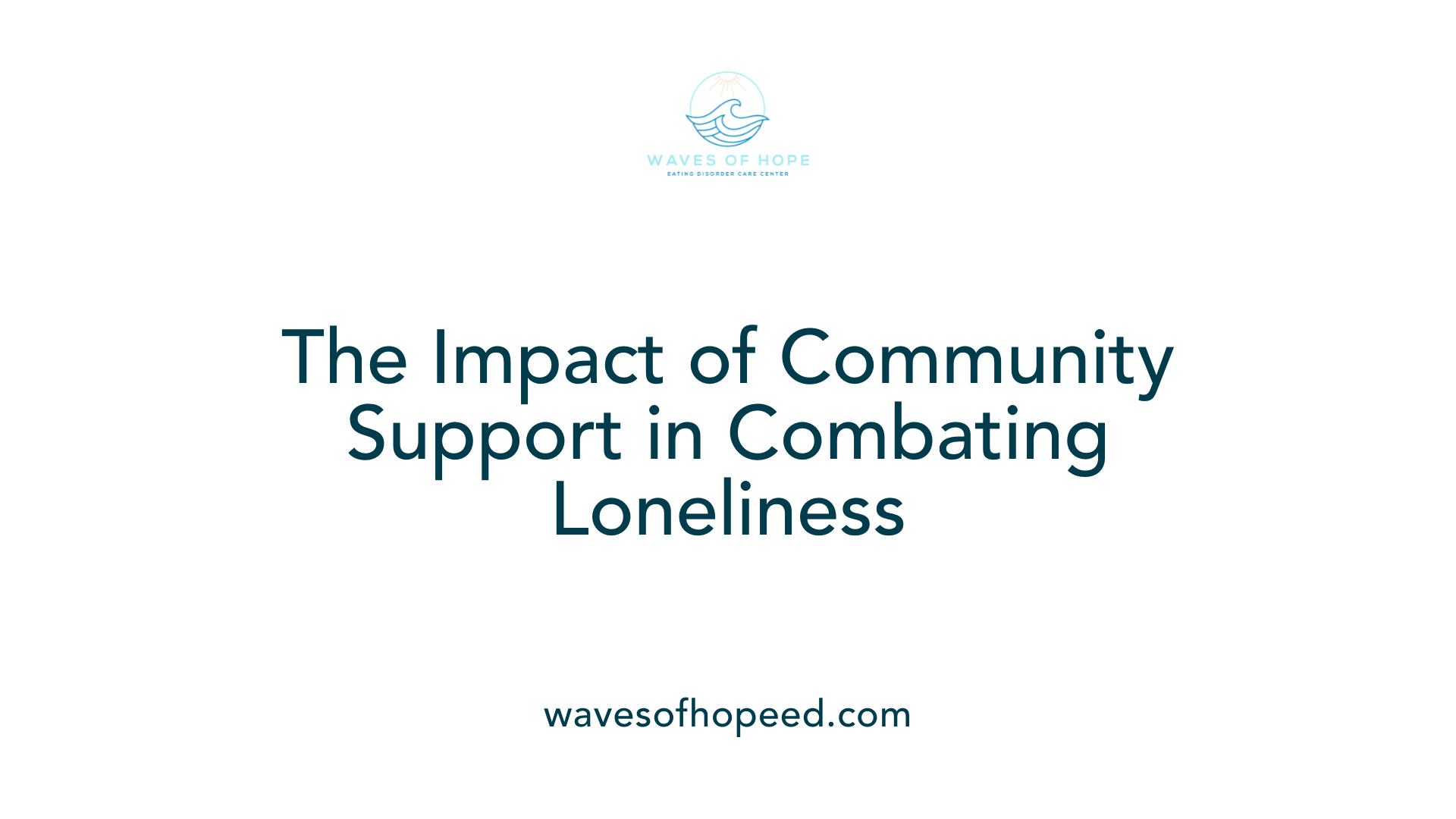
How can community support and resources from Waves of Hope Ed aid individuals experiencing loneliness?
Waves of Hope Ed plays a pivotal role in supporting individuals grappling with loneliness, especially as it relates to eating disorders. Their therapist-led support groups create an inclusive environment where members can share their experiences without fear of judgment. Available both virtually and in-person, these groups foster a sense of community that significantly reduces feelings of isolation.
In particular, Waves of Hope Ed tailors its offerings to meet the needs of diverse populations. This includes specific support sessions for larger bodied individuals and the LGBTQ+ community, ensuring that everyone has a voice and feels represented. Such targeted programs are crucial for creating a safe space where participants can discuss their struggles and triumphs in a collective atmosphere.
What are the benefits of engaging in group support?
Participating in group therapy can alleviate loneliness in several ways:
- Connection: Individuals often realize they are not alone in their feelings, reducing the perception of isolation.
- Shared Experiences: Hearing others' stories fosters empathy and understanding, which can be profoundly healing.
- Skill Development: Group settings also provide opportunities to learn and practice social skills, empowering members to build healthier relationships outside the group.
How do community initiatives contribute to mental health?
Waves of Hope Ed further enhances its community impact through educational initiatives aimed at eliminating stigma surrounding eating disorders. By promoting understanding and empathy, these programs help integrate individuals struggling with loneliness into the broader community, reinforcing the importance of social connections.
By linking individuals with vital resources and support networks, Waves of Hope Ed not only combats loneliness but also promotes a culture of self-love and recovery. Overall, community resources of this kind are instrumental in facilitating healing pathways for those facing the dual challenges of loneliness and eating disorders.
The Intricacies of Loneliness and Mental Health
How does loneliness relate to mental health issues, particularly in those with eating disorders?
Loneliness acts as a significant factor that exacerbates mental health issues, particularly for individuals dealing with eating disorders. This distressing feeling of perceived social isolation intensifies emotions of worthlessness and can lead to a cycle of withdrawal from social interactions. Many who struggle with eating disorders experience a profound sense of disconnection, which hinders their recovery and reinforces patterns of isolation.
In the context of eating disorders, loneliness and mental health conditions share a bidirectional relationship. On one hand, loneliness can nurture mental health issues by fostering a lack of support and deepening feelings of inadequacy. Conversely, those facing eating disorders may resort to harmful eating behaviors as coping mechanisms for their emotional distress, thus perpetuating their feelings of loneliness.
A statistic from Australia indicates a staggering 1 in 3 individuals report feeling lonely, further highlighting the prevalence of loneliness as a symptom and contributing factor to mental health challenges. It is especially troubling to note that 1 in 4 Australians experience persistent loneliness, which is prevalent among people with eating disorders. Such data illustrates the commonality of loneliness in this demographic, making it clear how intertwined these issues can be.
Peer support groups, such as those organized by the National Association of Anorexia Nervosa and Associated Disorders (ANAD), are vital in addressing loneliness. These groups foster community and connection by enabling individuals to share their experiences with others facing similar challenges. Such environments cultivate feelings of belongingness, which can counteract the negative effects of loneliness and isolation.
Organizations like the National Eating Disorders Association (NEDA) offer crucial resources and immediate assistance, guiding individuals toward support and treatment options that can significantly diminish feelings of loneliness. Access to these resources is essential, as they tackle barriers to treatment while promoting social connections that enhance mental health.
In summary, the battle against loneliness requires both professional intervention and community engagement. By leaning on support networks and taking part in group interventions, individuals can cultivate connections that not only reduce feelings of isolation but also pave the way for recovery from eating disorders.
The Power of Music Therapy in Recovery
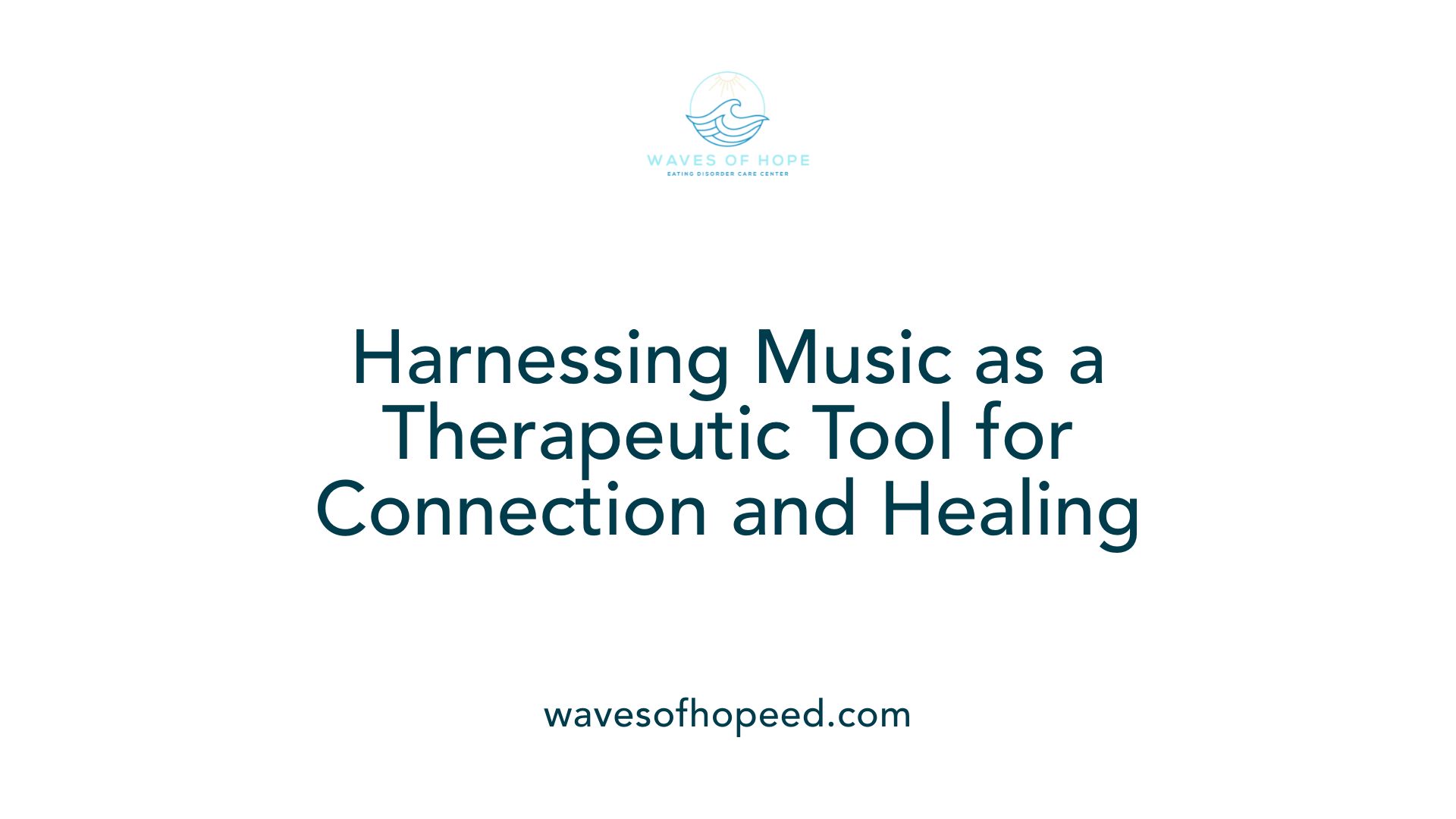
What music therapy interventions can aid in recovery?
Waves of Hope Ed employs various music therapy strategies to foster emotional well-being and connection among individuals recovering from eating disorders and loneliness. One popular method is Self-Guided Music-Assisted Relaxation, where individuals can listen to chosen instrumental music while practicing progressive muscle relaxation. This approach allows them to focus on their breath and bodily tension, creating an opportunity for mindfulness and calm.
Another engaging activity is the autobiography in song exercise. Participants analyze song lyrics, journal about their feelings, and use visual arts, giving them an avenue to reflect deeply on their recovery journeys. This multi-dimensional exploration helps them express their unique experiences and emotions.
Additionally, individuals are encouraged to compile a personal inventory of recovery music—curating playlists that encapsulate their emotional states. Whether validating current feelings or articulating desired emotional outcomes, this exercise promotes self-awareness and emotional expression, which are critical in combatting loneliness.
What techniques and benefits does music therapy provide?
Music therapy techniques inherently promote connection and emotional healing. Group singing is particularly beneficial, as it creates a shared experience that fosters belonging among participants, reducing feelings of isolation.
Participants in music therapy also engage in group activities that enhance communication skills and develop empathy. This not only builds social ties but also helps individuals learn from each other’s experiences, creating a supportive community atmosphere.
The versatility of music therapy addresses various emotional needs, from pain to distress, ultimately improving quality of life. By integrating innovative strategies, music therapy has the power to combat loneliness, cultivate healthy relationships, and encourage personal growth in those seeking recovery.
| Therapy Intervention | Description | Benefits |
|---|---|---|
| Self-Guided Music-Assisted Relaxation | Promotes relaxation through instrumental music. | Reduces stress and anxiety while enhancing mindfulness. |
| Autobiography in Song Exercise | Analyzes lyrics and expresses feelings through art. | Encourages deep reflection and personal expression. |
| Personal Inventory of Recovery Music | Curates playlists representing emotional experiences. | Fosters self-awareness and emotional validation. |
| Group Singing | Encourages shared musical experiences. | Builds a sense of community and belonging among participants. |
Effectiveness of Waves of Hope Ed’s Loneliness Alleviation Programs
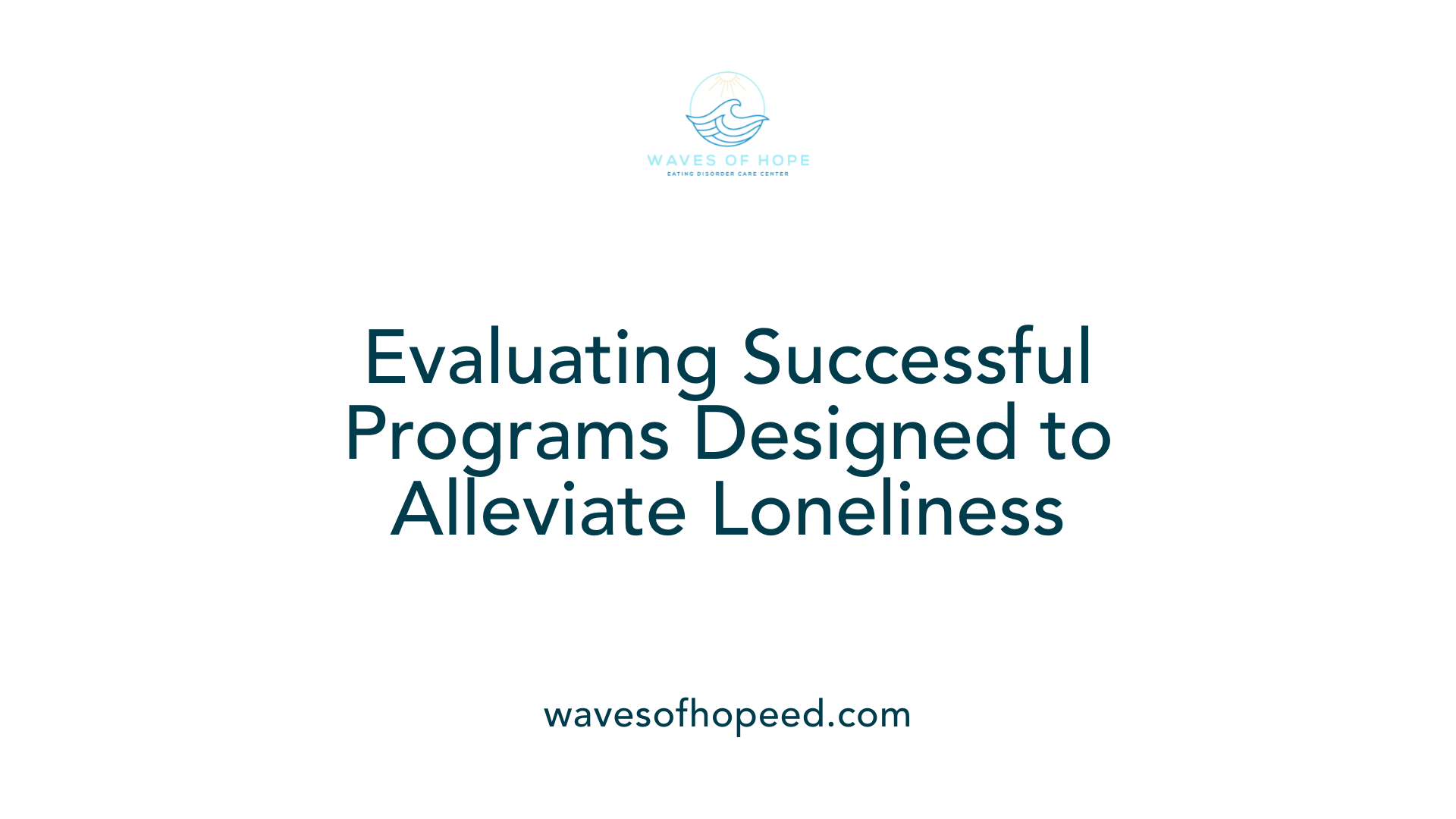
What are the effectiveness and outcomes of the programs aimed at alleviating loneliness for clients?
The Waves of Hope Ed’s Loneliness Alleviation Programs have demonstrated notable effectiveness in addressing loneliness among various demographics. A recent systematic review encompassing 70 studies revealed that diverse interventions, such as animal therapy, multicomponent approaches, and exercise programs, effectively reduce feelings of loneliness. Each intervention has its nuances, with some focusing on emotional support and others on physical engagement.
Furthermore, technological solutions have emerged as powerful allies in combating loneliness. Programs utilizing video conferencing platforms have yielded remarkable results, particularly among older adults who may struggle with traditional social interactions. These programs showed significant decreases in loneliness and depression, fostering increased engagement and joy among participants.
The implementation of an ICT-based Loneliness Alleviation Program (LAP) highlighted the importance of connecting participants through technology. Participants reported feeling more involved and engaged, contributing to a notable uplift in their mood and social wellbeing. Such programs utilize tailored strategies to meet individual needs, showcasing the necessity of customization for maximum impact.
Additionally, internet-based cognitive behavioral therapy (ICBT) emerged as a moderate yet effective approach. When guided by mental health professionals, it not only diminishes loneliness but also alleviates associated psychological symptoms. This form of therapy is especially beneficial for those who prefer a more flexible, accessible route to support.
Client Outcomes
The outcomes of these comprehensive programs indicate a shift towards improved mental health for clients involved. Reports of increased laughter, connection, and everyday engagement reflect a profound impact on participants' overall quality of life.
While many of the interventions show promising immediate results, the review emphasizes the importance of sustained engagement for long-term relief from loneliness. Programs that offer continuous support and regularly adapted strategies are best suited to address the unique challenges faced by different clients. Tailored approaches not only enhance the effectiveness of the interventions but also nurture personal growth, resilience, and a sense of community among participants.
Personal Stories: Journeys From Isolation to Recovery
Can personal accounts or experiences highlight themes of isolation and recovery within Waves of Hope Ed?
In the "Waves of Hope Ed" initiative, personal stories profoundly convey the struggles and victories associated with feelings of isolation and recovery from eating disorders. Carers often share their emotional burdens, revealing feelings of guilt and isolation while striving to support their loved ones. Their narratives reflect the intense emotional landscape that encompasses both the challenges of caregiving and the longing for wellness in those affected.
One such example is Emily's journey through recovery. Her story emphasizes the importance of confronting painful emotions as a crucial step in healing. Emily learned that acknowledging her deep-seated feelings of loneliness was essential for paving her path toward recovery. Such narratives not only resonate on an individual level but also act as powerful beacons of hope for others experiencing similar struggles.
Impact of shared narratives
Sharing experiences in support groups showcases the healing power of collective narratives. Participants often find solace in knowing they are not alone, as evidenced by the shared sentiments within the mental health community. As stories of recovery circulate, individuals draw inspiration from others overcoming similar battles, which can significantly reduce feelings of loneliness.
Moreover, gaining insight into others' journeys fosters a sense of understanding and connection. The act of storytelling promotes a supportive environment, reinforcing the idea that isolation can be challenged through shared experiences. Individuals not only express sorrow but also share hope, emphasizing the importance of community in overcoming adversity.
These accounts illustrate the significant role of personal experiences in therapeutic settings. They encourage recognition of the interplay between loneliness and recovery, reinforcing the need for holistic treatment approaches that appreciate lived experiences alongside clinical practices. Each narrative serves as a reminder that shared understanding can illuminate the path from isolation to healing.
Essence of Group Therapy in Combating Loneliness
What is the role of group therapy and community involvement in supporting clients dealing with loneliness?
Group therapy and community involvement are vital components in addressing loneliness, especially for individuals grappling with eating disorders. These settings provide a supportive space where individuals can share their experiences, connect with others facing similar struggles, and break the cycle of isolation.
Benefits of Group Therapy
Groups like the National Association of Anorexia Nervosa and Associated Disorders (ANAD) foster peer support. This environment promotes belongingness and connection through shared narratives, which is crucial for those recovering from eating disorders. Key benefits include:
- Sense of Belonging: Participation in group therapy creates an understanding that one is not alone in their struggles, reducing feelings of isolation.
- Empathy and Support: The interactions often lead to increased empathy, providing emotional support that can alleviate distress.
- Skill Development: Group settings provide opportunities to practice social skills essential for building healthy relationships.
Community Involvement
Engaging in community activities is another effective strategy against loneliness. It encourages connections through shared interests and facilitates emotional healing. Benefits include:
- Access to Resources: Community programs often connect individuals to professional treatment options and additional support, broadening their recovery network.
- Enhanced Recovery Process: The shared journey fosters a sense of hope and motivation, which is particularly beneficial for those feeling hopeless in their recovery efforts.
- Reduced Stigma: Increased community awareness about loneliness and eating disorders helps reduce stigma, making individuals feel more accepted and willing to seek help.
Ultimately, the interplay of group therapy and community involvement helps to create a comprehensive support system for individuals. Participants can experience shared healing in an encouraging environment, which significantly mitigates feelings of loneliness and reinforces the importance of human connection in their recovery journey.
Educational Tools to Cope With Loneliness
Are there educational resources through Waves of Hope Ed to help cope with loneliness and enhance emotional wellbeing?
Absolutely, resources offered by Waves of Hope Ed can play a significant role in aiding individuals to cope with loneliness and foster emotional wellbeing. Various organizations, such as the National Alliance for Eating Disorders and ANAD (National Association of Anorexia Nervosa and Associated Disorders), provide both online and in-person support groups.
These groups are designed to create a sense of community and belonging, which is particularly beneficial for those feeling isolated. In a supportive environment, participants can share their experiences and connect with others who understand their struggles. This connection fosters emotional relief and helps combat feelings of loneliness.
Types of Support Available
- Online Support Groups: Many organizations host virtual sessions that allow individuals to participate from the comfort of their homes.
- In-Person Groups: Local chapters often provide face-to-face meetings, enhancing the personal connection.
- Family Resources: Support options like Your Recovery Resource are tailored for families and friends, guiding them to better assist their loved ones in recovery.
Enhancing emotional wellbeing through community connections
While these educational tools and groups are invaluable, they shouldn't be viewed as a replacement for professional treatment. Instead, they complement therapeutic approaches. The incorporation of community support can lead to significant improvements in emotional wellbeing.
Engagement in community activities and awareness programs is essential in reducing loneliness. Understanding loneliness as a shared human experience can foster empathy and connection among participants.
Benefits of Community Support
| Type | Benefits | Impact on Loneliness |
|---|---|---|
| Support Groups | Sharing experiences in a safe environment | Reduces feelings of isolation |
| Educational Workshops | Learning coping strategies | Promotes healthy emotional responses |
| Family Engagement Programs | Educating families on support | Enhances support networks |
Ultimately, while educational resources may not directly alleviate loneliness, they create pathways to connection and understanding that are therapeutic in their own right. Engaging with others not only addresses loneliness but also enhances emotional wellbeing, affirming that no one has to suffer in silence.
Universal Experiences in Group Therapy
Concept of Universality
The concept of universality in group therapy plays a pivotal role in addressing loneliness and promoting connection among members. It emphasizes that many individuals share similar thoughts, feelings, and struggles. This realization creates a safe space where participants can openly discuss their experiences without fear of judgment. When people see that others have faced challenges akin to their own, it helps to reduce the overwhelming sense of isolation.
Understanding that loneliness is a common experience can be incredibly validating. Group members often find solace in knowing they are not alone in their struggles, fostering a sense of shared humanity. This shared experience can alleviate feelings of worthlessness and help participants develop empathy for themselves and others.
Belonging and Connection
Feeling a sense of belonging is crucial for mental well-being. Group therapy facilitates this by enabling participants to forge connections with others who may be experiencing similar emotional struggles, like loneliness or mental health conditions. Such interactions can help create secure attachments among group members, leading to improved overall well-being.
Moreover, group therapy often incorporates activities that enhance social skills and promote engagement. This is especially important in light of recent challenges posed by the COVID-19 pandemic, which heightened feelings of isolation for many. As individuals share their stories, they build a community that nurtures support, encouragement, and hope.
In conclusion, group therapy serves as a powerful platform that diminishes feelings of loneliness through shared experiences and the cultivation of belonging. By connecting with others in similar situations, participants not only find relief from their own loneliness but also contribute to a supportive community dynamic that fosters personal growth and healing.
Preventing Loneliness Through Engagement and Activities
Engagement in Activities
Engagement in community activities can be an antidote to loneliness, creating opportunities for individuals to connect over shared interests. Participating in social clubs, volunteering, or attending local events allows for social interactions that can cultivate friendships. Research suggests that these connections help individuals feel less isolated and more integrated into their communities.
One effective strategy is to find group activities, such as sports teams or classes, that encourage collaboration and support. This not only counters feelings of loneliness but also promotes a sense of belonging. For instance, individuals with similar hobbies coming together can form strong bonds, reinforcing emotional connections that are vital for overall well-being.
Enhancing Social Skills
Therapies focusing on social skills training can significantly aid individuals struggling with loneliness. Group interventions can offer invaluable practice in navigating social interactions, helping participants to build confidence and learn effective communication strategies. Techniques from Cognitive-Behavioral Therapy (CBT) play an important role here, empowering individuals to challenge negative thoughts and improve their relationship with others.
Moreover, involvement in support groups can address both loneliness and specific challenges, such as those related to eating disorders. Sharing experiences within a supportive group not only nurtures social skills but also helps participants realize they are not alone in their struggles. The collective journey fosters a unique environment of understanding and compassion, essential for healing.
In summary, engaging in activities that promote connections and enhancing social skills are effective ways to combat loneliness. These strategies not only address personal feelings of isolation but also cultivate a wider support network that is essential for mental health.
Breaking the Cycle of Loneliness and Eating Disorders
Intersection of Loneliness and Eating Disorders
Loneliness is more than just a feeling of being alone; it often manifests as perceived social isolation, which is a significant factor in the development of eating disorders. Research indicates that one in four individuals in Australia experience persistent loneliness, which exacerbates mental health challenges like eating disorders. This linkage is concerning because loneliness can lead individuals to engage in harmful eating behaviors as a coping mechanism.
The relationship is cyclical; loneliness may lead to eating disorder symptoms, while these behaviors further increase feelings of isolation and worthlessness. Sharing experiences in support groups can disrupt this cycle, providing a community where individuals feel understood and valued.
Cycle Disruption Strategies
To combat the intertwined issues of loneliness and eating disorders, several effective strategies can be employed:
- Therapeutic Interventions: Cognitive-Behavioral Therapy (CBT) can help individuals recognize and challenge negative thoughts about their social interactions, promoting healthier relationships.
- Group Therapy: Participating in group sessions can foster a sense of belonging. It encourages social interactions that lead to secure attachments, alleviating feelings of isolation. The universality of shared experiences within these groups helps members realize they are not alone in their struggles.
- Community Engagement: Involvement in local community activities or support programs tailored to shared interests can build meaningful connections, addressing loneliness at a broader level.
- Music Therapy: Group activities, such as singing, can create shared experiences that boost emotional support and connection among participants, reducing feelings of isolation.
- Healthy Coping Mechanisms: Encouraging individuals to express their feelings openly and seek support from friends and family creates an emotional support network essential for overcoming loneliness.
Utilizing these strategies can guide those affected by both loneliness and eating disorders towards recovery, fostering a sense of hope and community.
Navigating Social Isolation with Eating Disorders
Addressing Social Isolation
Loneliness is often a distressing feeling of perceived social isolation, which can significantly impact individuals with eating disorders. Research indicates that 1 in 3 Australians experience loneliness, while 1 in 4 face persistent feelings of it. This highlights the widespread nature of loneliness, especially among those with eating disorders where it can act as both a symptom and a contributor.
For individuals suffering from eating disorders, the withdrawal from social interactions can worsen feelings of worthlessness. Many resort to using food or disordered eating behaviors as a means to cope with these overwhelming emotional states. This creates a vicious cycle where loneliness exacerbates the eating disorder, further amplifying isolation.
Loneliness in Recovery Journey
Strong social connections and nurturing environments play a crucial role in the recovery journey for those facing eating disorders. Therapeutic interventions, including Cognitive-Behavioral Therapy, can help individuals confront negative thought patterns while developing healthier relationships. Group therapy, in particular, has been shown to foster a sense of belonging and universality. By sharing their experiences in a supportive setting, individuals can combat feelings of isolation.
Engagement in community activities can also help those battling loneliness while recovering from eating disorders. Support groups offer opportunities for connection, allowing individuals to share their struggles and feelings of loneliness. The shared experiences in group settings create a narrative that encourages healing and community.
Moreover, music therapy has emerged as a versatile tool to enhance social interaction among participants. Techniques such as group singing foster connections, enhance empathy, and address feelings of loneliness, making sessions valuable not only for emotional expression but also for building relationships.
Overall, the way to address loneliness within the context of eating disorder recovery involves a combination of professional support and community engagement. By focusing on building a 'family' of trusted individuals and participating in group activities, those affected can navigate through their feelings of isolation, fostering hope and motivation toward recovery.
The Path to Connection and Recovery
Through dedicated therapeutic practices, community support, and personalized interventions, Waves of Hope Ed has made significant strides in combating loneliness among individuals with eating disorders. By fostering environments of empathy and understanding, they have redefined recovery as not merely an individual journey but a collective endeavor, emphasizing the importance of community, shared experiences, and personal growth. This commitment to connection at every stage of recovery helps combat isolation and nurtures emotional resilience, guiding individuals towards a future filled with hope and belonging.
References
- How to Overcome Loneliness According to Psychology
- How to overcome loneliness while experiencing an eating disorder
- New horizons in group psychotherapy research and practice from ...
- Eating Disorders and Isolation: How to Recognize the Signs
- 15 Music Therapy Activities and Tools - PositivePsychology.com
- Mental health and loneliness: the relationship across life stages
- What Is the Link Between Loneliness and Eating Disorders?
- Eating Disorder Peer Support Groups | ANAD



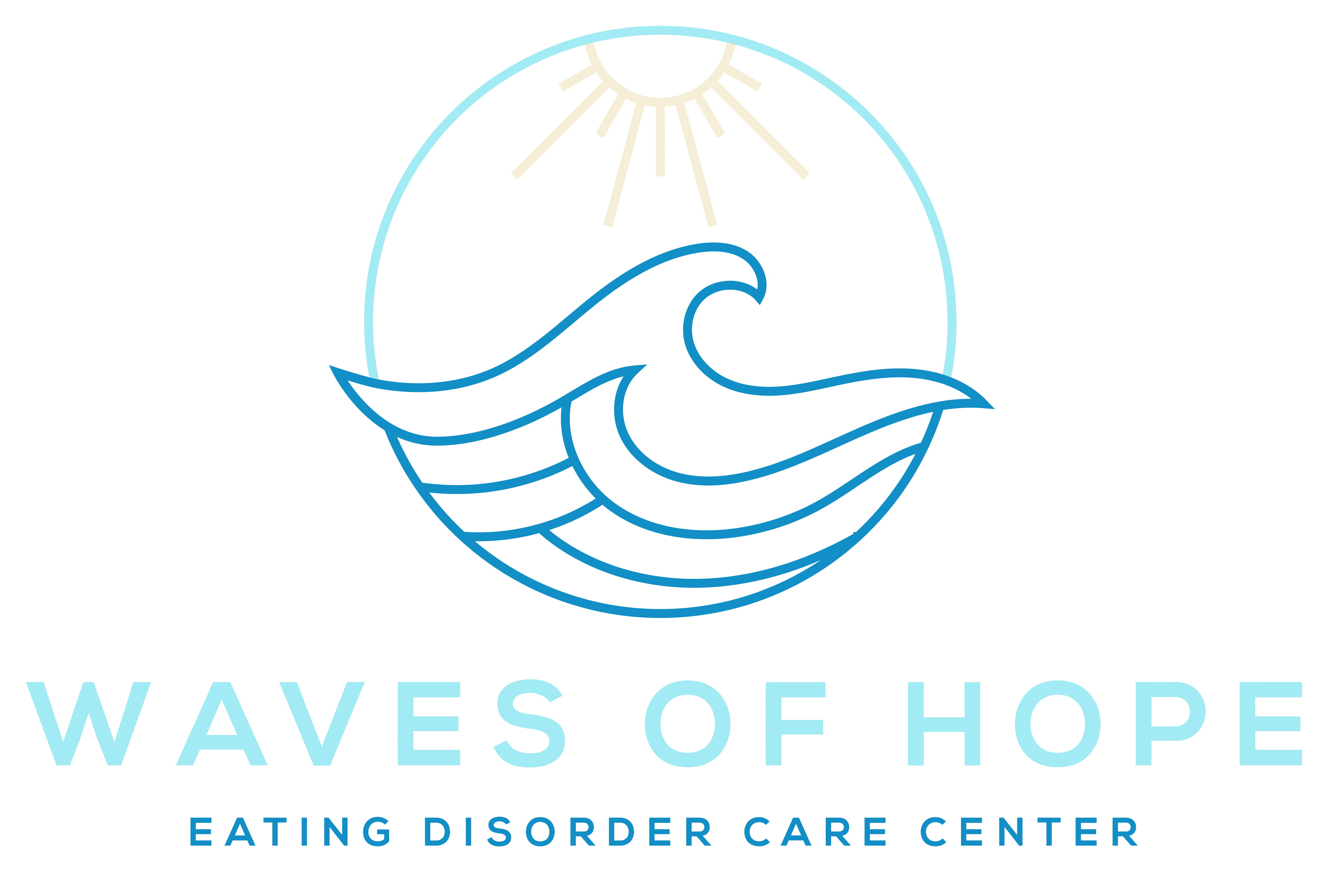
.svg)

.avif)
.avif)
.avif)
.avif)
.avif)
.avif)
.avif)
.avif)
.avif)
.avif)
.avif)
.avif)

.avif)
.avif)
.avif)
.avif)
.avif)
.avif)
.avif)
.avif)
.avif)


.avif)
.avif)

.avif)
.avif)
.avif)
.avif)
.avif)


.avif)
.avif)

.avif)
.avif)
.avif)
.avif)
.avif)
.avif)
.avif)
.avif)
.avif)
.avif)
.avif)
.avif)
.avif)
.avif)
.avif)
.avif)
.avif)
.avif)
.avif)
.avif)
.avif)
.avif)
.avif)
.avif)
.avif)
.avif)
.avif)
.avif)
.avif)
.avif)
.avif)
.avif)
.avif)
.avif)
.avif)
.avif)
.avif)
.avif)
.avif)
.avif)
.avif)
.avif)

.avif)
.avif)
.avif)
.avif)
.avif)
.avif)
.avif)

.avif)
.avif)
.avif)
.avif)
.avif)
.avif)
.avif)
.avif)
.avif)
.avif)
.avif)
.avif)
